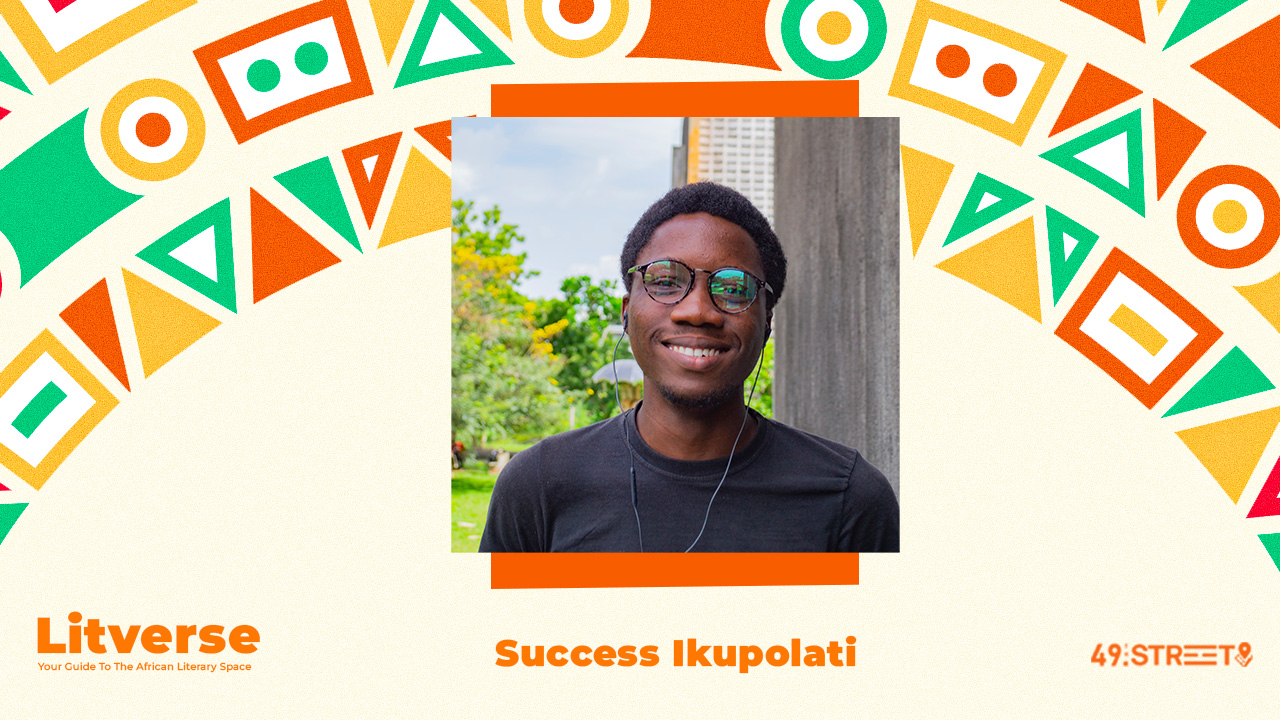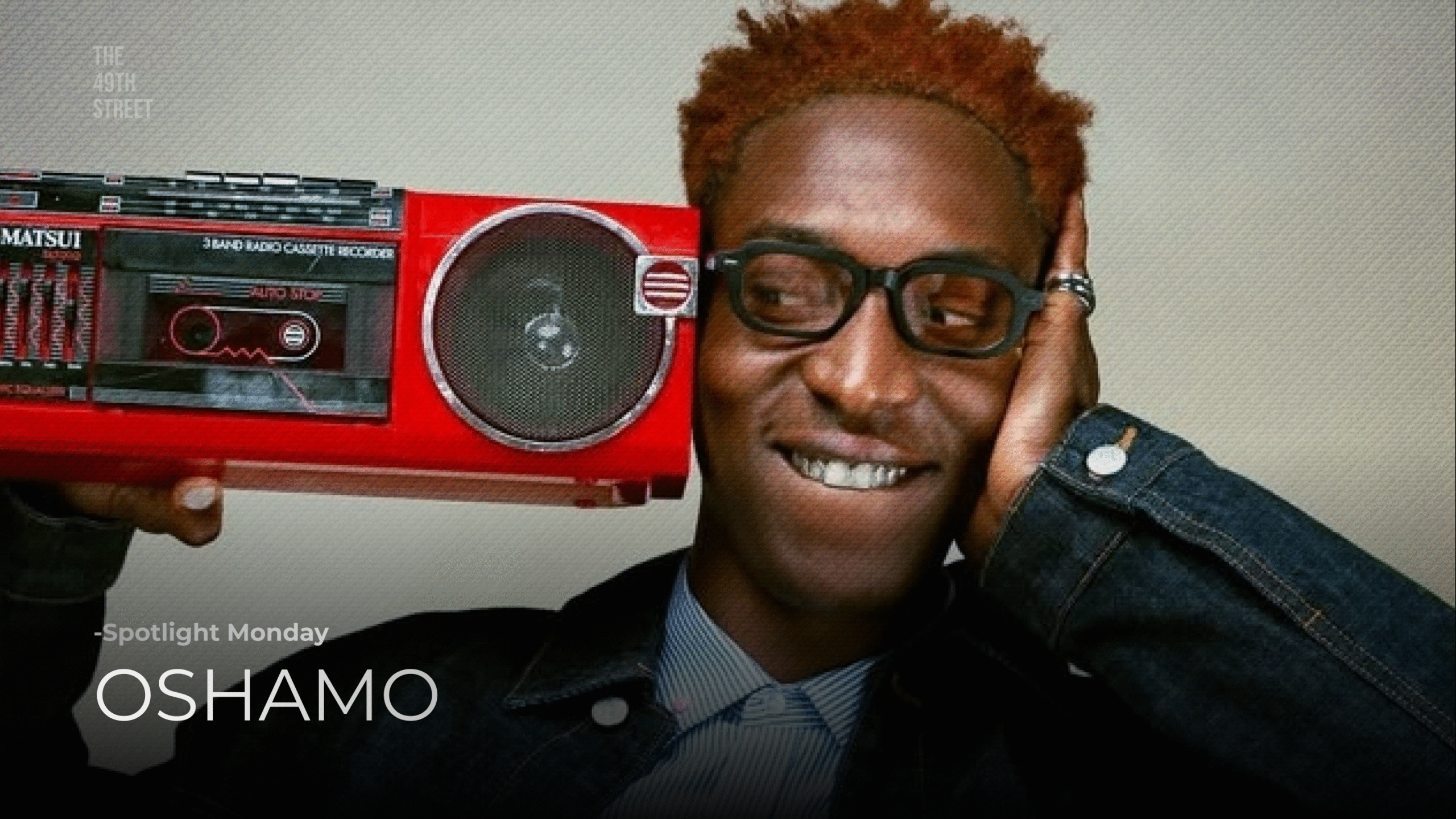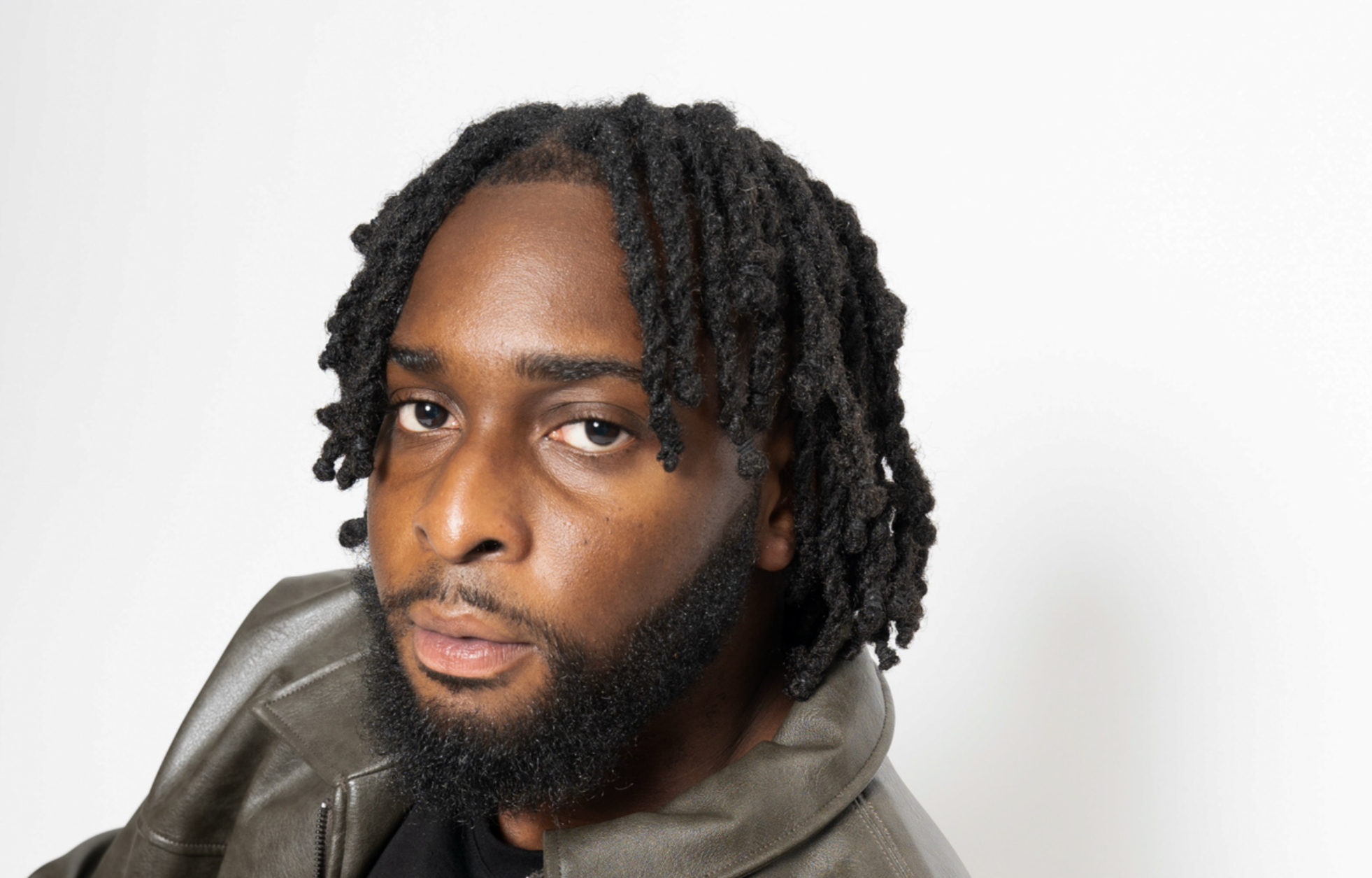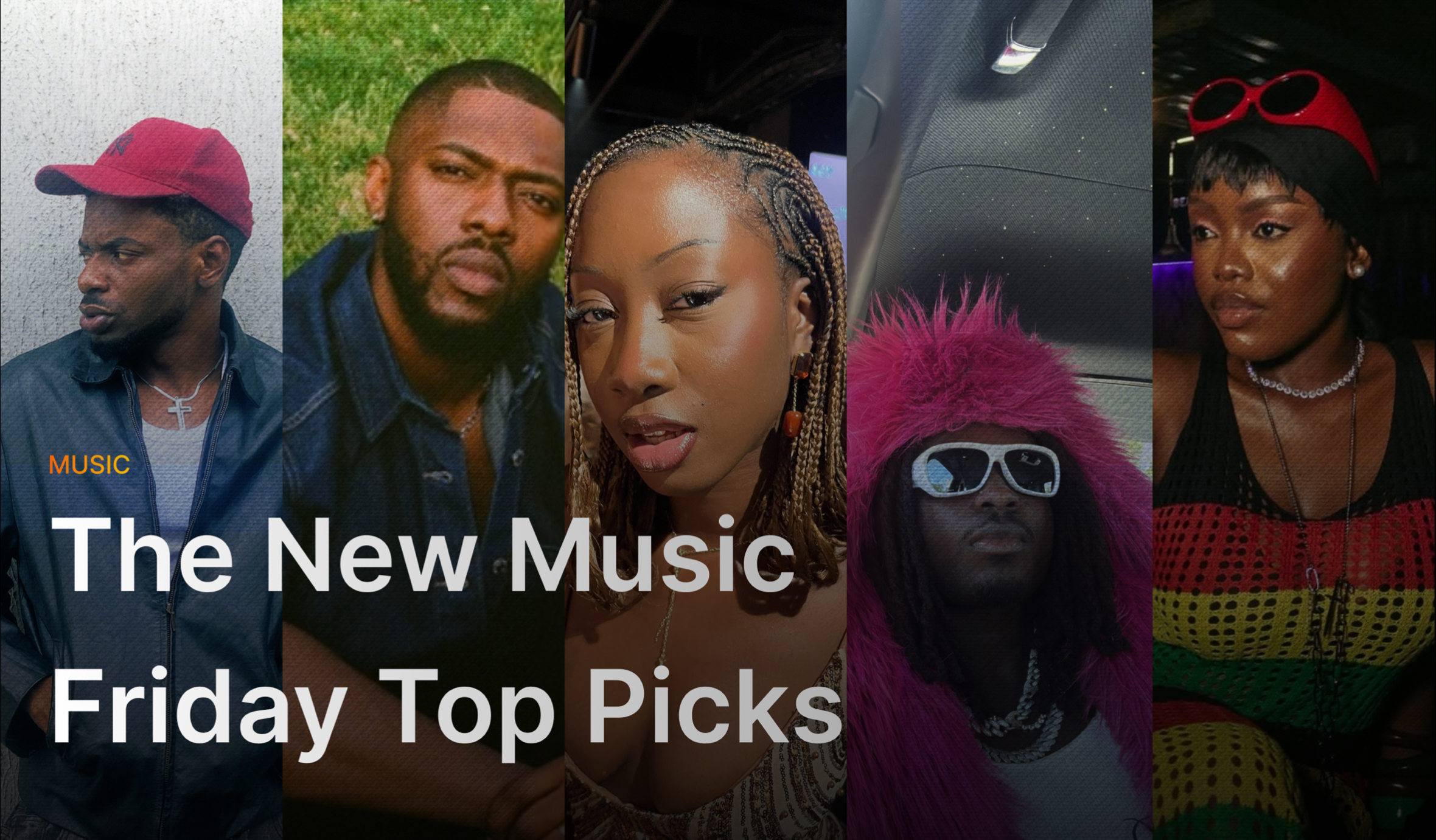From reading Marvel and DC Comics as a child to studying Fine Arts in university, Success Ikupolati was very interested in comics. Together with his ten other co-founders, they’re building Brown Roof Studios, the comic company they hope to be the DC/Marvel of African comics.
For this episode of the 49th Litverse, Zia sits to talk to Success about what it means working with 10 other people, the ups, downs and the in-betweens of running a comic book company in Nigeria.
Good morning, how are you?
Success: I’m doing good, what about you?
I’m great. Who is Success?
Success: My name is Success. I am a co-founder of Brown Roof Studios, I’m also an artist and I work as a comic book colourist right now, but there are other developments going on. So, I guess that’s about it or is there any specific thing you want to know
What made you guys start Brown Roof? Because you guys are probably the first indigenous comic based in Nigeria that I’ve heard of.
Success: Okay so, the genesis of Brown Roof started from individual studios. We had two studios initially that’s Inspiron and MC Multiverse. These studios came together because we were initially struggling individually, and we thought about how we can make things better. Seeing as we were colleagues, there was no point being competitors, so we came together to create something for the betterment of the comic industry. The motive for the merger was to have an indigenous storytelling platform where we can tell African stories.
You know the Marvel and the DC guys create African stories too. However, they have their own input on it. For example, there are some Nigerian studios that would have a deal with Disney, and then Disney requires that the entire thing must be in English. We believe that for an African studio with African content, to be African there have to be major hints to it being African, not just in the visual aspect but in the language as well. This is why sometimes you’ll see in our comics after using English to get a wider audience, we will still infuse some indigenous languages like Yoruba.
That’s another reason we chose the name Brown Roof Studios, our purpose is to tell African stories. “Brown Roof” was actually gotten from Ibadan. If you hear Brown Roof, you will definitely tend to link it to “Ibadan”, and the reason we created Brown Roof is to tell African stories to the Africans.
What is your creative process like? Is it an all-hands-on-deck thing?
Success: Okay, so Brown Roof is a team of eleven co-founders, and not all of us are working on Jakuta, the comic you read. We all have our individual roles in the studio that we are working towards.
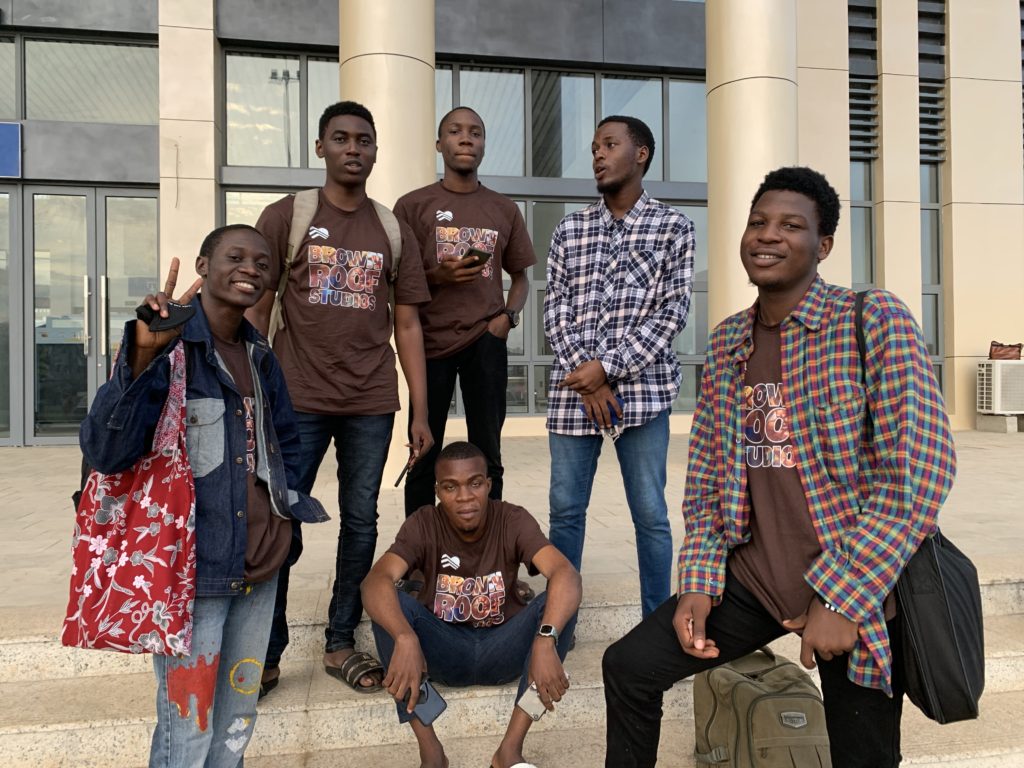
Eleven people trying to change the African comic book industry, interesting, no? Are you guys the only ones or do you guys see other comic companies?
Success: Okay, at the moment I would say we are not the only ones. However, in Nigeria, I would say we are the only ones because I don’t think I’ve heard of any studio in Nigeria that is doing it this way. The ones I know of are just outside the country, like Youneek Studios. They’ve been in the business for a while and they are telling the African story. Although the CEO is a Nigerian, we at Brown Roof have a different light. I mean we are just starting but I would say they are the only ones that are doing it the African way, talking about the Yoruba tribe and other stuff. But right now, in Nigeria what most people are focusing on, I would say is emulating Westerners in their comics. For example, Guardian Prime a comic created by Comic Republic, are doing it the way we would see all these popular comics do theirs, like Marvel, DC and the likes. We are not really driving towards that, as we are more about the indigenous taste our comic books have.
Essentially you can beat your chest and say you guys are pioneers of the African comic industry.
Success: Not exactly though, African comic content has been on for a while and honestly, I won’t say we are pioneers. If I say we are pioneers it would seem as if I’m trying to glorify Brown Roof. So I won’t say we are pioneers, instead, I would say we are part of the people that are going to create a better light for the comic industry., We are just among the people putting African content out there, but we are telling it in our own way as Nigerians and as Africans.
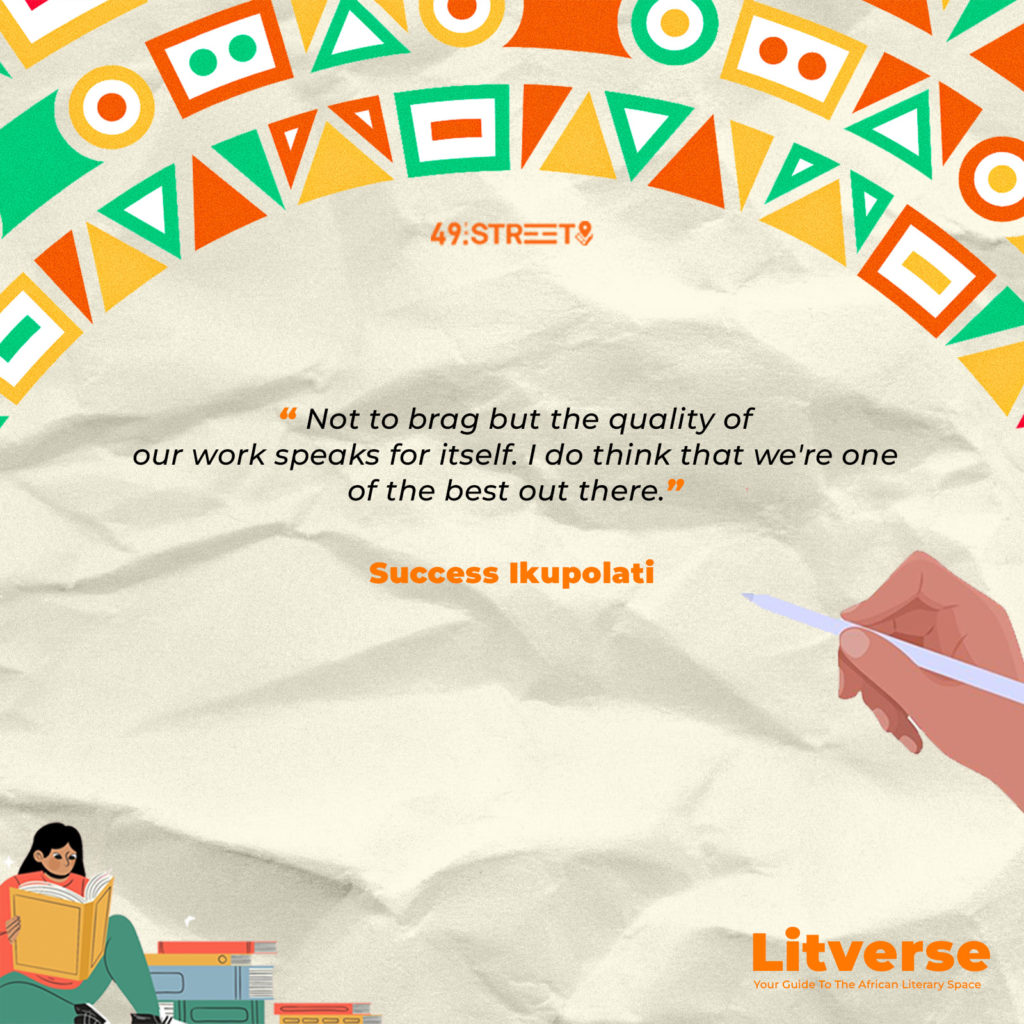
That makes sense. I know there have been challenges along the way. What has been your biggest challenge since Brown Roof started?
Success: Hmm, I would say one of the biggest challenges we faced is; sorry should I use the word “Africans” or “Nigerians”?
Nigerians would be fine.
Success: Okay cool, some Nigerians don’t actually hmmm, I won’t use the world value but honestly, I don’t know the word to use there but I would say they don’t see it the way we see it. They don’t see that we are telling a historical story, you are trying to fantasize about it and they still see African content as being evil or fetish. I would say the major challenge in getting this story out there is that African content is still being seen by Nigerians as fetish stuff, and honestly the major reason why we are telling this story is to revitalize our history and historical figures. You will notice that even in our story we are not going to point of idol worship and all that, we are more straightforward in portraying what actually happened historically, that’s the major story we are trying to tell.
Some Nigerians, especially the older generation are not seeing it in this way, they see it in a traditional way. This is the biggest challenge because it’s said for you to make it big out there, your people in your own country will have to receive you first. You know be a local champion before becoming an international champion.
So, portraying this content in a good light to the original owners of this history is a challenge, but we will scale through this eventually.
You said that your stories are historically based. Are you trying to make them historically accurate or are you just loosely basing your stories on history and then adding a sprinkle of fantasy? For example, with Jakuta, are trying to loosely base it on history or do you just want to be accurate about it?
Success: I would say we are loosely basing our stories on history, but not so loose because what actually makes up history is the things that happened, and characters that were involved in those events. I won’t say loosely I would say moderately meaning it’s majorly inspired by history but we are not going to be portraying history, we will merely be using some inspired events.
Take for example Jakuta; the major goal of this title is to tell us the story of a mortal to a god. When Sango is being worshipped, he’s being worshipped as Sango, not Jakuta. We are more focused on the origin of Sango himself. Right now, our story is kind of delving into how he became a king, what was going on during the period he was a king, how people tried to kill him, how he made enemies, stuff like that.
For example, the newest issue of Jakuta, showed us a new character called Koro. Koro is one of his enemies in the story so we are not really going through fantasy or being too imaginary about it, we are more in it for the history and how we can tell this history cinematically.
What do you hope to achieve with Brown Roof Studios?
Success: Well, we hope to foster a culture of reading amongst people. We also want to bring African stories and our heritage closer to the people. We want the media to be as saturated as possible with our stories. When we create our comics, we’re trying to foster a reading culture and also make our culture accessible. We are using entertainment to build the culture of reading and also increase the awareness of how beautiful our culture is 🤎
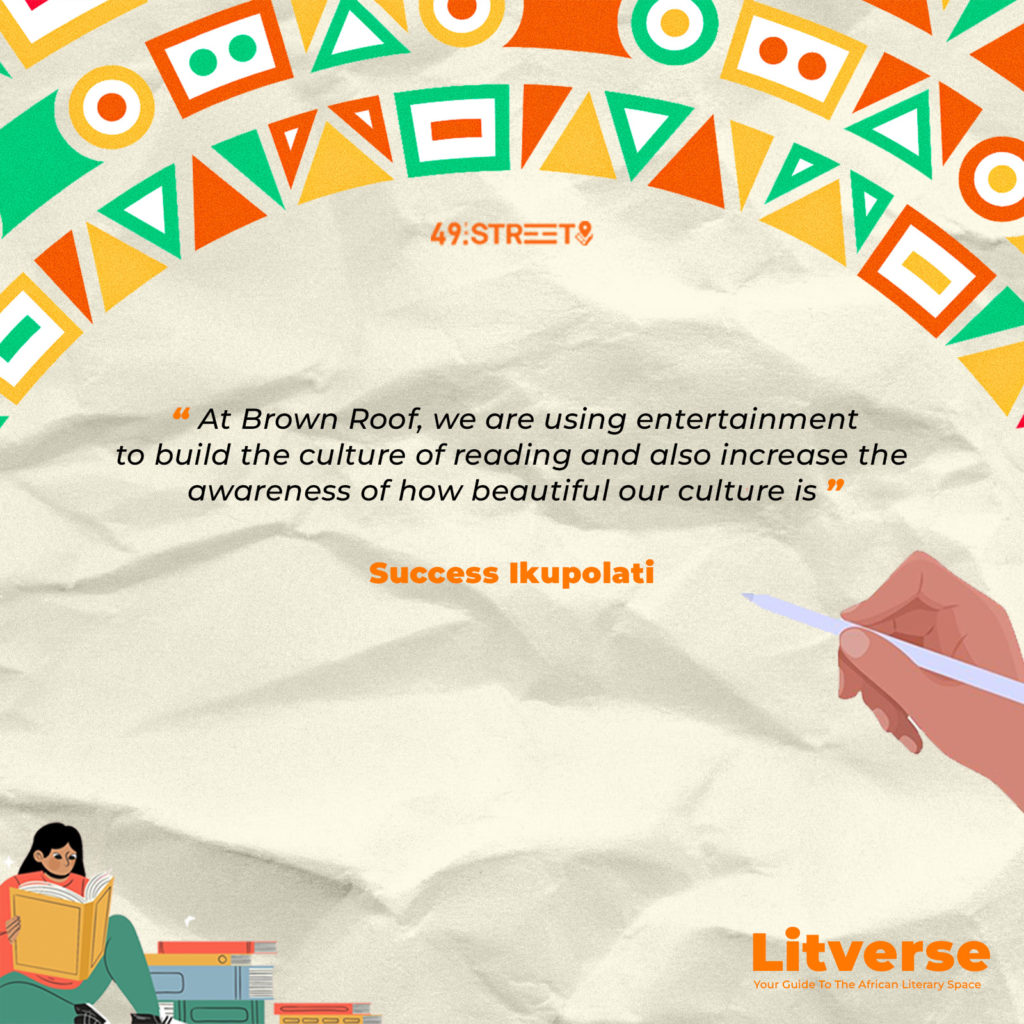
I understand why the reception from the older generation is lacking but your target audience if I’m not wrong isn’t only the older generation though? It’s including the millennials and Gen Z, right? How’s their reception to Brown Roof stories?
Success: I would say it has been positive, and those are actually the main audience because the older generation already knows what happened in the past, so why still tell them no? I would say the audience from the millennials and Gen Z has been very positive. We’ve been getting positive reviews for the story. There was a time I and Tobi were out and we were trying to pitch the title to a millennial and he was like he’s actually seen our stuff before, and honestly, this is what we want and not a scenario where we are still trying to convince you it isn’t fetish and all. So yeah, it’s been very positive and I hope that things get better.
How do you convince people to give your comics and stories a chance?
Success: We really just let the work speak for itself. Our comics speak for themselves. Our quality is top notch and we use that quality to tell the African story. I don’t mean to brag but I can say we’re probably better than any comic company out there.
That’s nice, so Tobi is your co-founder?
Success: Yes, he’s my co-founder. I always mention Tobi because I speak more with him but the eleven co-founders of the studio have equal rights to the studio, we are like a board. I’m the managing director but this doesn’t mean an artist in the studio cannot have ideas, because right now we all have the right to the studio.
I get it, so how do you guys make decisions, do you guys vote unanimously? How’s your decision-making process?
Success: Our decision-making process? Honestly, I don’t know the word to use to describe it, but I would just say it’s flexible. I’m the managing director, yes but when it’s time to make a decision I’m a team player. I don’t like it when I’m working with my team and then my team doesn’t know what’s going on. Personally, I feel like the way I’m taking Brown Roof as the managing director, even after making some decisions I still want to get feedback from my team. I would pitch the idea to my team to know if everyone is on board, if there’s a disagreement then we will discuss why it’s so. So I feel it’s flexible and not a rigid platform.
How many issues of Jakuta are you aiming to publish?
Success: Okay, at the moment we are working towards Jakuta being a 6-issue story, where we show the world the mortality of Sango, that’s the goal.
Interesting. How does distribution work?
Success: We have a website that has the issues of our comics. Issue one and two for free on our website, that’s brownroofstudios.com but Issue Three has to be paid for
Okay cool, what about physical copies?
Success: We actually still produce prints for sale, for anyone that’s not in Ibadan to get a copy, we are working towards shipments to other states.
I await the good news. Okay, so after Jakuta what next? Can you give me an exclusive?
Success: What is next for Brown Roof huh? We are actually working on some titles, the next title we are planning to release will probably be early next year around March, the title is Zena. I won’t be going in too deep, but this is an exclusive.
What’s the moment you realized that running Brown Roof was what’s making you happy and fulfilled? Was there a singular moment or it was a combination of events?
Success: I only enjoy having this moment when I see people’s reactions to the content. When we started, we were aware that a business is run on the emotions of the customer. When we actually got the first release of Jakuta, that was the most priceless emotion I ever felt since starting Brown Roof. It was phenomenal, I think we got close to 1900 downloads on our website that was the peak moment for me. I’m just happy with the team, I’m happy with the content we are creating, being content that people want to interact with, and the fact that we are telling the historical story is what makes it even more precious to me.
When I was young most of the stuff I consumed was Marvel and DC-related, and I cared less about the African story. When I eventually got into the uni, as an artist I studied Fine Arts, and we started engaging ourselves with African arts and things like that. I started getting enlightened on how rich our culture can be, and how crazy it can be to me now participating in telling African stories is one of the moments that makes me feel good
That’s sweet I’m happy for you, so do you guys have other titles before Jakuta?
Success: Yes, yes we are actually a new company.
Shout out to all you guys for the good work you’ve been doing and thank you for your time.

